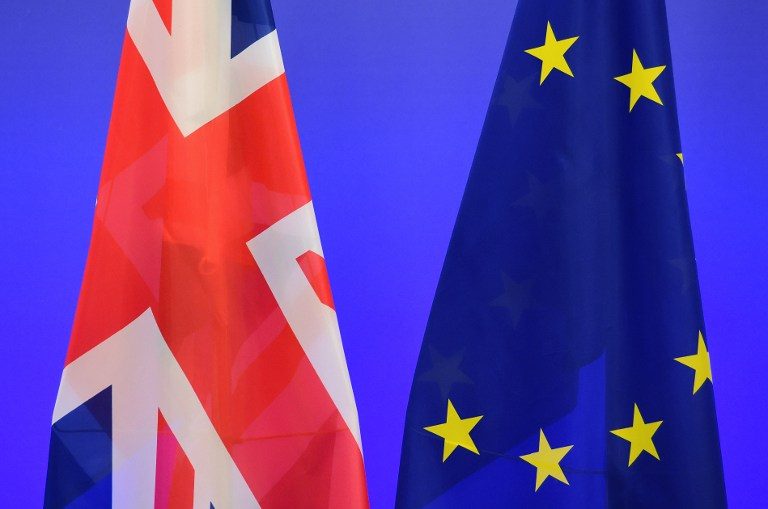SUMMARY
This is AI generated summarization, which may have errors. For context, always refer to the full article.

LONDON, United Kingdom (UPDATED) – After months without a breakthrough, David Cameron will finally give more details on Tuesday of what reforms he wants for Britain to stay in the European Union before a looming referendum.
Nearly three years after promising a vote before the end of 2017, the British prime minister will deliver his shopping list in a letter to EU president Donald Tusk, which is expected to be made public.
The letter comes ahead of a crunch European summit in Brussels next month and amid hopes that the British referendum on whether to remain an EU member state can be held next year.
Cameron will warn in a speech Tuesday that if Britain’s concerns are met with a “deaf ear”, he will have to “think again about whether this European Union is right for us.”
“I rule nothing out,” he will add, according to pre-released extracts.
His Europe Minister David Lidington told journalists last week not to expect too much new detail in the letter, adding it would be “ambitious” to hope for a deal at December’s summit.
“My advice to the prime minister has always been don’t publish a detailed negotiating position,” he said.
He also highlighted that there would have to be four months between any deal being agreed and the vote being held.
‘Wants to appease eurosceptics’
Gabriel Siles-Brügge, a politics lecturer at Manchester University, said Cameron had always been “a bit vague” in his demands because he is carrying out “a difficult balancing act”.
“He wants to appease eurosceptics in his own party while avoiding Brexit (British exit from the EU). But he is of course now being pushed by EU leaders to concretise his proposals,” he told Agence France-Presse.
“That may lead to the former being disappointed because the proposals aren’t intended to push Britain towards Brexit but rather to allow him to proclaim a symbolic victory over Brussels.”
John Springford of the Centre For European Reform highlighted that Cameron first promised a referendum in 2013, when the anti-EU UK Independence Party (UKIP) was surging and his position looked shaky.
His Conservatives subsequently won a House of Commons majority in elections this year while UKIP managed to win just one seat.
“The strategy was a political one,” he added. “I really don’t think Cameron went into that speech with a clear view of what reform he even wanted from the EU.”
Four key areas
In recent weeks, European partners have put increasing pressure on Cameron to lay out in more detail what kind of reforms he wants.
British Foreign Secretary Philip Hammond on Sunday told the BBC that some of the reforms “will require changes to the body of law, to the treaties and secondary legislation,” although the prime minister has accepted that this is highly unlikely before the referendum is held.
Cameron has long identified four broad areas where he wants to see reforms — improving competitiveness, greater “fairness” between eurozone and non-eurozone nations, sovereignty issues including an exemption from the aspiration of ever-closer union and making it harder for migrants to claim benefits.
When Cameron’s de facto deputy and possible successor, finance minister George Osborne, gave a speech in Berlin last week, German Chancellor Angela Merkel conceded that Britain had “justified concerns” and stressed she wanted to help prevent a Brexit.
Experts say there is room for compromise in all areas except migration, where Cameron wants to stop EU migrants, including those in work, from claiming certain state benefits for four years after arriving in Britain.
“In the UK, this is one of the key issues if not the key issue as far as the public is concerned,” said Stephen Booth, co-director of think-tank Open Europe.
This will be particularly tough to achieve agreement on because of non-discrimination principles in EU legislation.
A failure by Cameron, who has said he will step down as prime minister by 2020, to achieve what he wants over benefits would be particularly damaging to him and his centre-right Conservative party.
Hammond warned that a Brexit was a real threat if Britons believed they were being “fobbed off with a set of cosmetic alterations”.
“This is about fundamental change. If we can’t do that, then we can’t win a referendum,” he said. – Jacques Klopp, AFP / Rappler.com
Add a comment
How does this make you feel?
There are no comments yet. Add your comment to start the conversation.